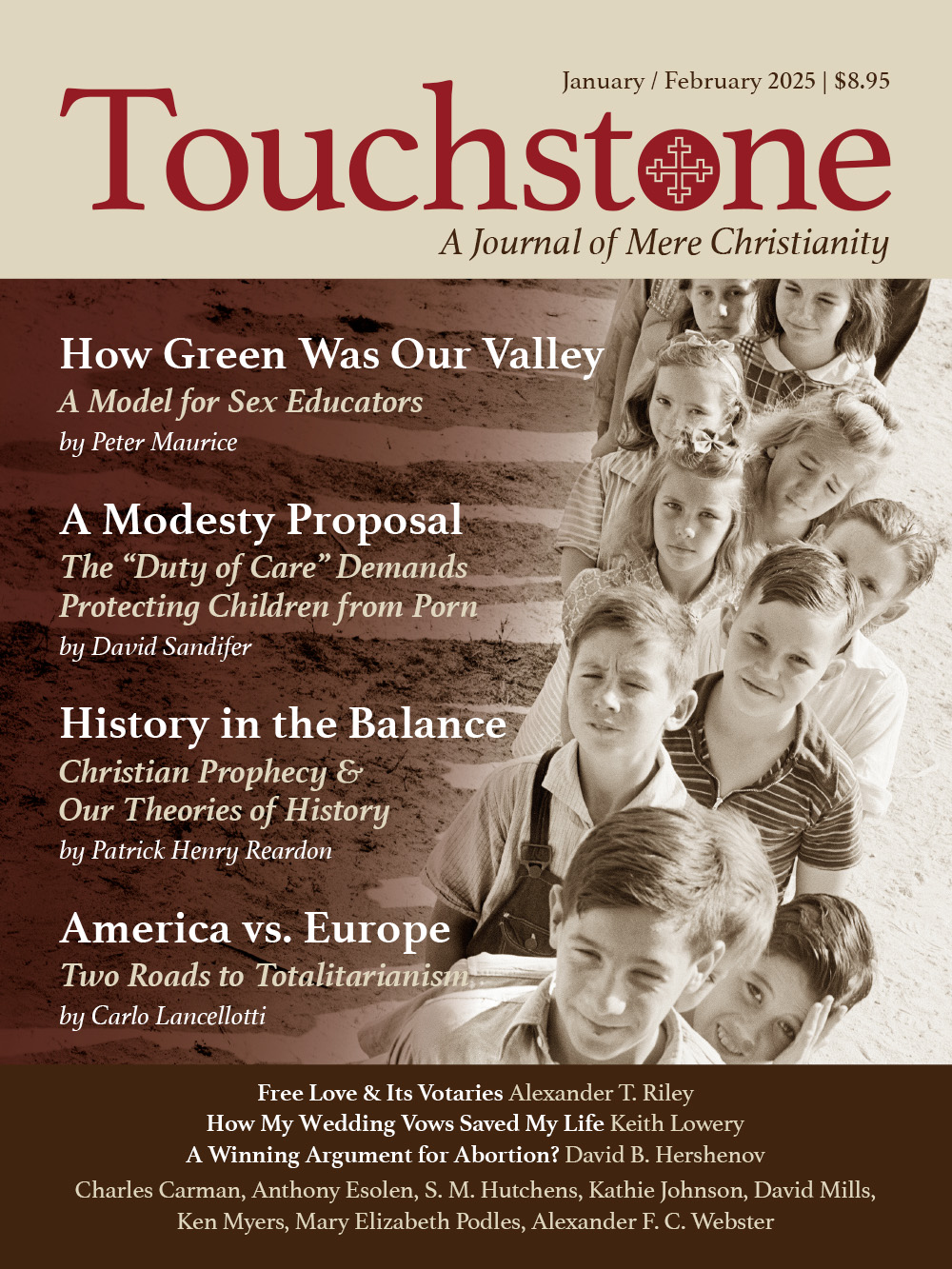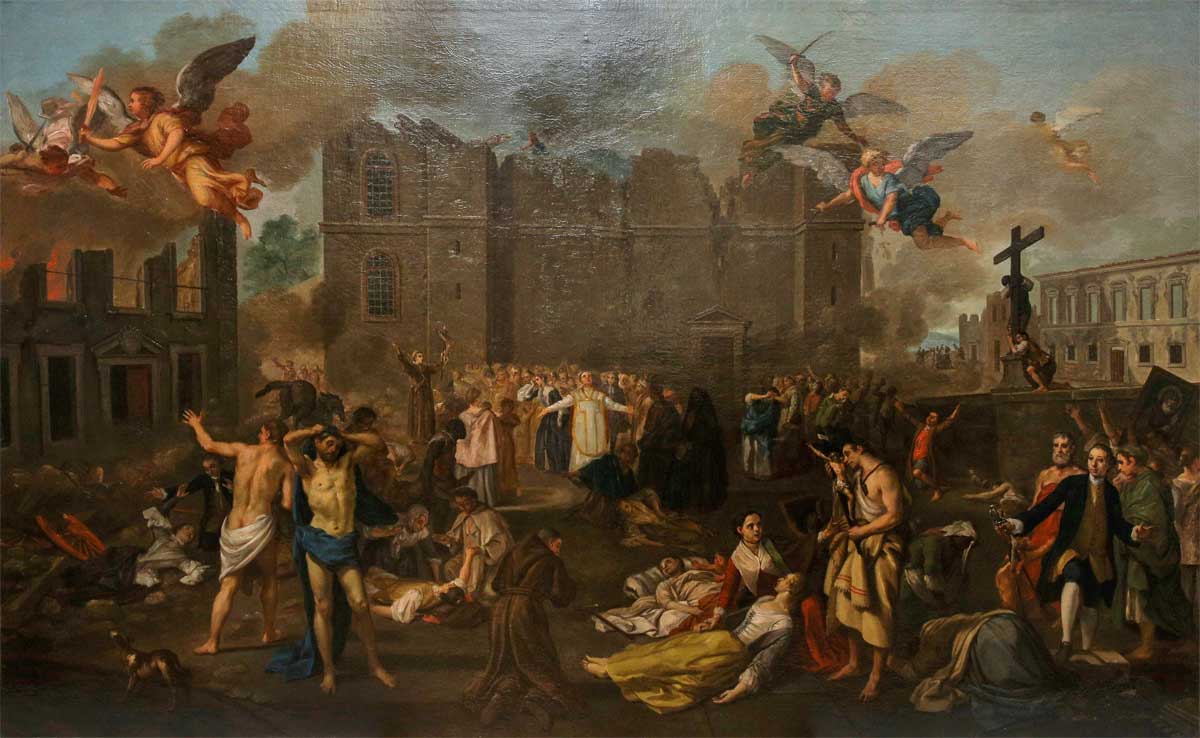Eschewing Concupiscence of the Ears
With this column, I conclude eleven years of writing about sacred choral music for Touchstone. The first column was published in the March/April 2014 issue, not under the heading From Heavenly Harmony but Contours of Culture, a moniker I used for about four and a half years for a series of short essays I contributed to recommend books—new and old—that served to help interpret modern cultural patterns. For a long time, my day job has involved a kind of intensive investigative reporting: not (as that term might suggest) exposés of current miscreants or scandals, but sleuthing directed at the deep cultural currents and unremitting tides that set the stage of personal and social experience in the (increasingly strange) times in which we live.
The name of the column was changed at my request to From Heavenly Harmony when the editors generously granted permission for me to focus all my attention on music rather than books. The column that launched my series of musings about music—titled “Melodious Order”—stated a conviction that has guided my writing in these pages for the past decade: “I have come to believe that the sphere of experience in which the challenging of modern assumptions is most difficult (and least pursued) is that of music, both how we experience music and how we explain it.” Eleven years of thinking and writing—as well as countless conversations about music with interlocutors sympathetic, hostile, or puzzled—has confirmed that conviction.
Those who are hostile to or puzzled by my thoughts about music often challenge the claim that musical experience could conceivably involve “assumptions.” They don’t realize that their objection validates my claim, since they assume that music is inherently irrational, and hence our experience of the making and receiving of music is not governed or guided by “assumptions.” In that initial column, I quoted Calvin Stapert, author of A New Song for an Old World: Musical Thought in the Early Church (2007): “Our musical thought and practice have largely bought into the ideas and practices that came out of the Enlightenment and Romanticism.”
Music’s Prime Matter
THIS ARTICLE ONLY AVAILABLE TO SUBSCRIBERS.
FOR QUICK ACCESS:
Ken Myers is the host and producer of the Mars Hill Audio Journal. Formerly an arts editor with National Public Radio, he also serves as music director at All Saints Anglican Church in Ivy, Virginia. He is a contributing editor for Touchstone.
subscription options
Order
Print/Online Subscription

Get six issues (one year) of Touchstone PLUS full online access including pdf downloads for only $39.95. That's only $3.34 per month!
Order
Online Only
Subscription

Get a one-year full-access subscription to the Touchstone online archives for only $19.95. That's only $1.66 per month!
bulk subscriptions
Order Touchstone subscriptions in bulk and save $10 per sub! Each subscription includes 6 issues of Touchstone plus full online access to touchstonemag.com—including archives, videos, and pdf downloads of recent issues for only $29.95 each! Great for churches or study groups.
Transactions will be processed on a secure server.
more from the online archives
calling all readers
Please Donate
"There are magazines worth reading but few worth saving . . . Touchstone is just such a magazine."
—Alice von Hildebrand
"Here we do not concede one square millimeter of territory to falsehood, folly, contemporary sentimentality, or fashion. We speak the truth, and let God be our judge. . . . Touchstone is the one committedly Christian conservative journal."
—Anthony Esolen, Touchstone senior editor









